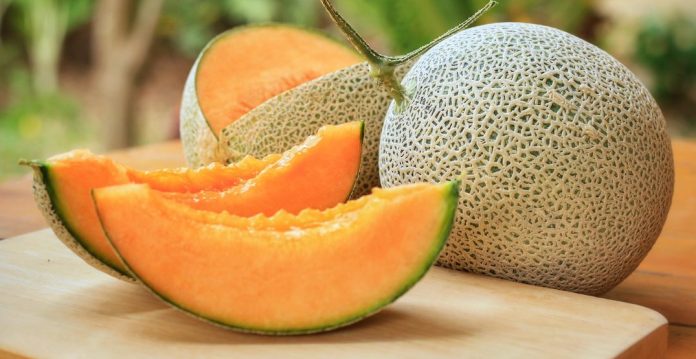
The Public Health Agency of Canada says it is collaborating with federal and provincial public health partners, the United States Centers for Disease Control and Prevention (U.S. CDC), and the U.S. Food and Drug Administration (FDA) to investigate an outbreak of Salmonella infections in six provinces including Ontario.
As of December 7, there have been 129 laboratory-confirmed cases of Salmonella Soahanina, Sundsvall and Oranienburg illness linked to this outbreak in British Columbia (15), Ontario (17), Quebec (91), Prince Edward Island (2), New Brunswick (2), and Newfoundland and Labrador (2).
Based on the investigation findings to date, consumption of Malichita and Rudy brand cantaloupes have been identified as the likely source of the outbreak. Many of the individuals who became sick reported having eaten cantaloupe before their illnesses occurred.
The public health agency says additional Salmonella infections are under investigation and more illnesses associated with this outbreak may be confirmed.
Individuals became sick between mid-October and mid-November 2023. Forty-four (44) individuals have been hospitalized. Five deaths have been reported. The majority of the individuals who became sick are children 5 years of age or younger (35%), or adults 65 years of age or older (45%). About half of the cases (52%) are female.
The Canadian Food Inspection Agency (CFIA) issued food recall warnings on November 1, November 14 and November 17 for Malichita brand cantaloupes sold between October 11 and November 14, 2023. On November 24, CFIA updated the food recall warning to also include Rudy brand cantaloupes sold between October 10 and November 24, 2023.
The recalled products were distributed in Alberta, British Columbia, Manitoba, New Brunswick, Newfoundland and Labrador, Nova Scotia, Ontario, Prince Edward Island, Quebec, and possibly other provinces and territories.
Additional secondary recalls have been issued for products that were made using recalled cantaloupes and for produce items that were processed alongside recalled cantaloupes. This includes other fruit like honeydew, pineapple, watermelon and various fruit trays.
The CFIA is continuing its food safety investigation, which may lead to the recall of other products.
“Do not eat, serve, use, sell, or distribute Malichita or Rudy brand cantaloupe,” PHAC said in a statement.
If you are unable to verify the brand of cantaloupe throw it out. This advice applies to individuals, as well as retailers, distributors, manufacturers, food service establishments such as hotels, restaurants, cafeterias, and facilities such as hospitals, long-term care homes, retirement residences and daycares, across Canada.
The U.S. CDC is also investigating an outbreak of Salmonella illnesses linked to cantaloupes that is the same genetic strain as illnesses reported in this outbreak.
Symptoms typically start 6 to 72 hours after exposure to Salmonella bacteria, and usually last for 4-7 days.
Symptoms may include: fever, chills, nausea, vomiting, diarrhea, headache and abdominal cramps.
People who are infected with Salmonella bacteria can spread Salmonella to other people several days to several weeks after they have become infected, even if they don’t have symptoms. Salmonella can spread by person to person contact and contaminated surfaces. Most people who become ill from a Salmonella infection will recover fully after a few days without treatment, but it can also cause severe illness and hospitalization.
Anyone can become sick with a Salmonella infection. “If you have been diagnosed with a Salmonella infection or any other gastrointestinal illness, do not cook food for other people,” PHAC said.




